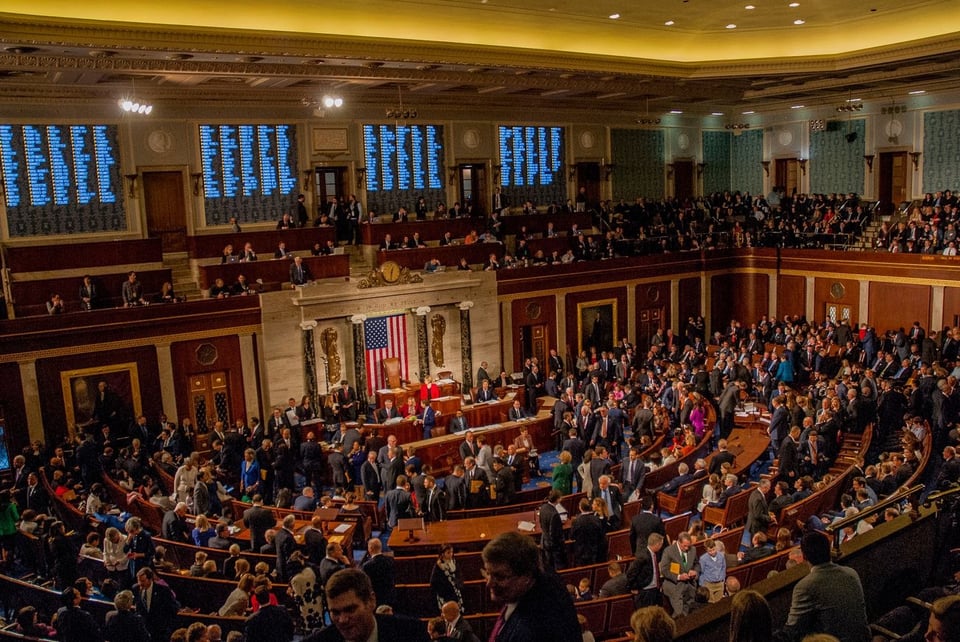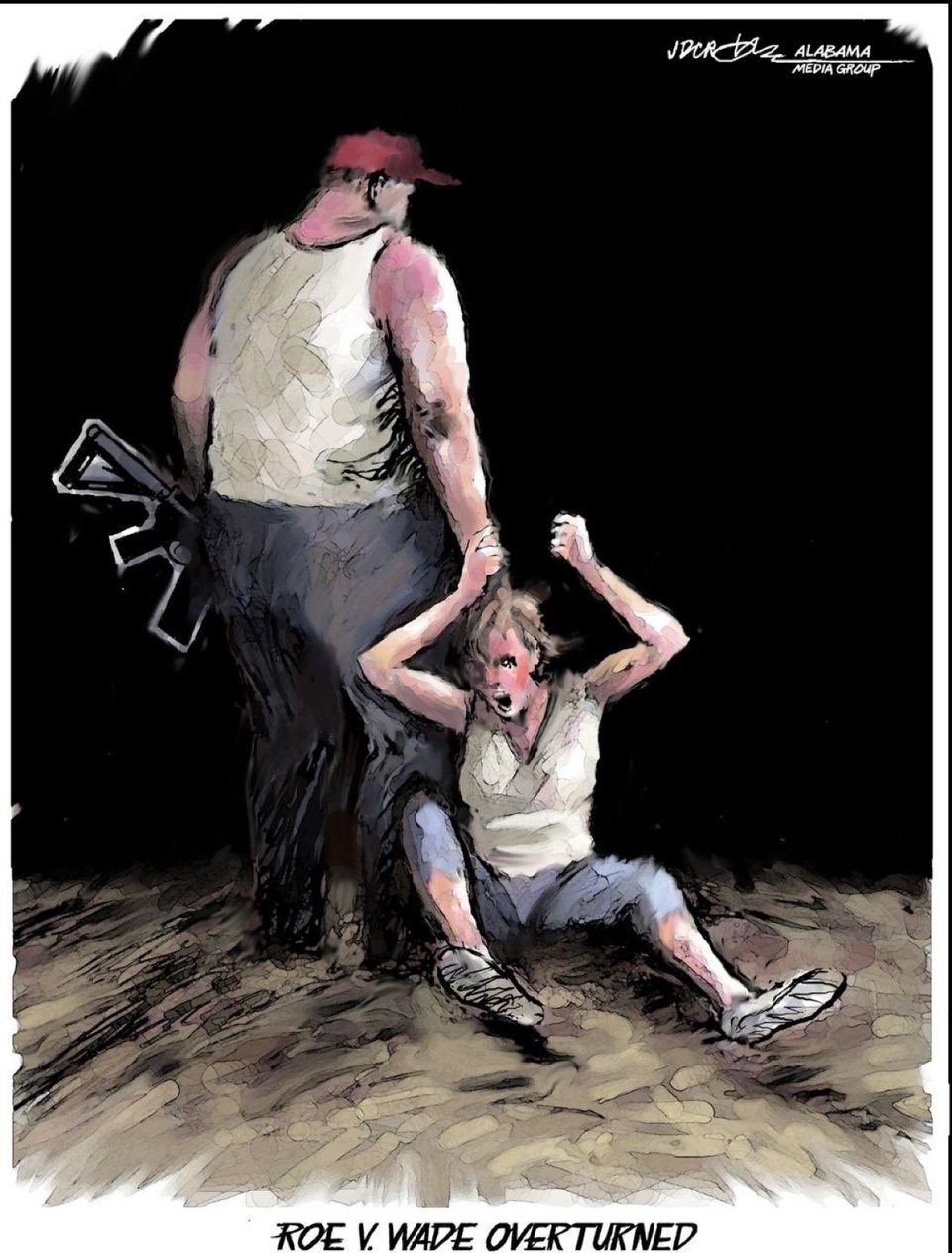Tuesday, November 7, 2023. Annette’s News Roundup.
I think the Roundup makes people feel not so alone.
To read an article excerpted in this Roundup, click on its blue title. Each “blue” article is hyperlinked so you can read the whole article.
Please feel free to share.
Invite at least one other person to subscribe today! https://buttondown.email/AnnettesNewsRoundup
—————————————————————-
Israelis hate Netanyahu. Why is he still in power?
Israeli Prime Minister Benjamin Netanyahu could lose his job amid Israel-Hamas war.

Israeli Prime Minister Benjamin Netanyahu is in trouble. As in, facing a non-zero risk of losing his job trouble. And this political drama could have a profound effect on Israel’s approach to the conflict with Palestine.
Netanyahu’s poll numbers since the October 7 Hamas massacre have been grim: One recent survey found that a staggering 80 percent of Israelis held him personally responsible for failing to prevent the Hamas attack; another found trust in the government at a 20-year low. To address his collapsing support, the prime minister held a press conference on Saturday — his first since the attack.
It was, to put it mildly, an embarrassment. Appearing alongside Defense Minister Yoav Gallant and National Unity party leader Benny Gantz, the prime minister appeared out of sorts, stumbling over a prayer for the Israeli army. He faced so many hostile questions from reporters, and had so few good answers, that he left early — only answering seven of the 12 questions he was slated to take.
Hours later, around 1 am Sunday Israel time, he sent out a tweet blaming Israel’s military and intelligence services for the failure to stop Hamas’s incursion — while pointedly refusing to take responsibility himself. The public backlash was so severe that Netanyahu deleted the post and apologized for sending it, the first time he had apologized for anything since the war began. (He still has not accepted any responsibility for the government’s failure.)
While many Israelis almost immediately blamed Netanyahu for the attack, they could spare little energy for internal political conflict amid the horror. But the weekend’s debacle has brought the question of Netanyahu’s fitness for office during wartime to the center of Israeli political debate.
In a Sunday interview, retired Israeli Gen. Noam Tibon — who, as a 62-year-old private citizen, took up arms on October 7 to defend Nahal Oz against Hamas — said Netanyahu needed to “resign now” for the good of the war effort. “The people need to feel security — they need to be sure that we are going to be victorious. I don’t think he can lead us to victory,” he told Israel’s Channel 12.
Tibon is not alone. By Monday morning, the anti-Netanyahu voices had grown to include some in his own Likud party suggesting (anonymously) that his time might be up.
“There is a growing number of prominent personalities, many from the security & intelligence communities, calling Netanyahu not only unfit and unworthy, but mentally incompetent,” Daniel Seidemann, a leading Jerusalem-based analyst of the Israel-Palestine conflict, wrote on Twitter (the platform also known as X).
At a Monday news conference, Netanyahu was even asked if he would resign.
There is a general sense among Israeli analysts that Netanyahu is nearing the end of his political rope. Israeli voters do not forgive and forget security failures — and this is the greatest in the country’s history, with significant evidence of his own personal responsibility. Though Netanyahu has weathered a lot, including an ongoing criminal trial, his political fall now feels like more of a “when” than an “if.”
But even if this analysis is correct, that “when” might not be anytime soon.
The next Israeli election isn’t scheduled for another three years, and there’s but the faintest of chances he resigns of his own free will before then.
The only plausible way to see a change in government in the coming months would be if at least five members of his pre-war governing coalition vote against him in the Knesset (Israel’s Parliament). Whether this could happen is anyone’s guess; it depends on the decisions of a few legislators who won’t talk publicly before they act.
The stakes are very high. If Netanyahu is toppled sooner rather than later, the nature of Israel’s policy toward the Palestinians could change significantly at a crucial time.
Why Netanyahu is in so much political trouble
Benjamin Netanyahu has been in power for a very long time. He was prime minister between 1996 and 1999, and then again led Israel for every year (save one) since 2009. All told, he’s the longest-serving leader in the country’s history.
Prior to the outbreak of the current war, it looked like his biggest legacy was picking a fight over the foundations of Israeli democracy. As part of a bid to protect himself from the very real specter of jail time stemming from corruption charges, Netanyahu formed an alliance with ultra-Orthodox and far-right parties premised on placing the judiciary under their political control. The first legislative piece of this judicial overhaul passed over the summer; Netanyahu’s government was busy trying to ram through a second piece when Hamas struck.
The judicial overhaul was astonishingly unpopular, spawning the largest protest movement in Israeli history. It meant that many Israelis were deeply hostile to his government prior to the attack — and had zero inclination to give him the benefit of the doubt after it happened. Netanyahu said on Saturday that the overhaul was dead, at least for as long as the war is ongoing, but the resentment it spawned remains.
To make matters worse for Netanyahu, there are specific good reasons to hold him responsible for the Hamas attack.
During this long tenure, his approach to Hamas’ regime in Gaza has been largely leaving it alone — even at times propping it up as a counterweight to the Palestinian Authority that rules the West Bank, through measures like facilitating cash transfers from Qatar to the Islamist group. The basic idea, he reportedly said at a 2019 meeting of his Likud party, was that the existence of Hamas foreclosed a negotiated two-state solution to the conflict.
“Anyone who wants to thwart the establishment of a Palestinian state has to support bolstering Hamas and transferring money to Hamas,” he said in comments first reported by Haaretz. “This is part of our strategy — to isolate the Palestinians in Gaza from the Palestinians in the West Bank.”
Obviously, this looks terrible in hindsight.
To make matters worse, Netanyahu had been repeatedly warned by members of Israel’s security establishment that the judicial overhaul push had been making Israel vulnerable — that, by dividing the society against itself, he created an impression that it might not be able to respond to an external attack. He ignored these warnings, focusing his security attention in recent months on a mostly self-created crisis in the West Bank — which seemingly took military resources away from monitoring Hamas in Gaza.
It’s easy to see, given this context, why Netanyahu and his Likud party is plummeting in the polls. One post-attack poll found that, were elections held tomorrow, Likud would go from its current 32 seats in the Knesset to just 19 — a roughly 40 percent drop.
“There’s probably something about this polarized context, and the fact that the attack is considered (rightly so, in my view) a failure specifically of Netanyahu, that prevented a rally-round-the-flag,” says Noam Gidron, a political scientist at Hebrew University in Jerusalem.
Gidron also points to Netanyahu’s post-attack conduct as a significant drag on his popularity. He doesn’t just mean the prime minister’s boorish refusal to shoulder any blame for intelligence and security failures, but also the government’s poor performance after the war began.
Netanyahu has failed, for example, to provide adequate support for the tens of thousands of Israelis displaced in the wake of Hamas’ assault. Private organizations, including an anti-judicial overhaul protest group, are left to fill the gap. Netanyahu appointed a political crony to head hostage rescue efforts, which has predictably led to significant (and embarrassing) clashes with the families of Israelis held captive by Hamas — many of whom feel like the government is not making the rescue of their loved ones a priority.
Whether any of this could lead to Netanyahu losing his job ahead of schedule is very hard to say. He categorically rejected the idea of resigning when asked at that Monday press conference, saying “The only thing that I’m going to have resigned is Hamas.”
Assuming he sticks with this pledge, he would have to be forced out by his own political allies. His pre-war governing coalition consisted of his right-wing Likud party, the extreme-right Religious Zionism slate, and two ultra-Orthodox parties (Shas and United Torah Judaism). Together, these parties control 64 out of the Knesset’s 120 seats — which means his rivals would need to recruit at least five members from their ranks to win a no-confidence vote and trigger new elections.
Under normal circumstances, that would be hard to imagine. But there are rumblings, especially in the wake of Sunday night’s Twitter debacle, that a push for defections might be gathering steam. Ultra-Orthodox parties, whose flexible policy positions on many non-religious issues enable them to join more centrist governments, are seen by some as the most likely coalition factions to support a push to hold a no-confidence vote.
“There are ministers and [lawmakers] from the [Likud] party who would join such an initiative. But the key to its success lies with the ultra-Orthodox,” an anonymous Likud minister told the Haaretz newspaper. “Likud members won’t join with just the left to topple Netanyahu; they need some other party from the governing coalition to join them.”
Whether or not this will actually happen remains to be seen. Netanyahu is a brilliant politician, and has outlasted many threats to his political survival in the past. But this time could be different.
“Depending on how the fighting goes, some in the coalition may decide to turn openly on Netanyahu,” says Natan Sachs, the director of the Center for Middle East Policy at the Brookings Institution. “I don’t think it’s likely, but it’s not impossible.”
Why Netanyahu’s fate matters
Netanyahu is, it’s fair to say, a towering figure in Israeli politics. Were he to fall, the consequences would be significant — an opening of Israeli political horizons that could very well change the course of the country’s history.
It’s hard to say exactly what the consequences would be for the immediate war effort. There’s simply too much uncertainty about if, let alone when, he might go down, to be able to make any predictions with specific confidence.
But one thing is for sure: Netanyahu’s fall would remove a significant barrier to a political resolution to the Israeli-Palestinian conflict. The prime minister isn’t the only barrier — in fact, not even the biggest one — but he is certainly a big one.
Netanyahu’s contributions to foreclosing a negotiated settlement are almost too numerous to count. He has presided over significant settlement expansion, moves to annex the West Bank, attempts to divide and conquer Palestinians by splitting the West Bank and Gaza politically, a far-right drift inside the Likud party, and the entrance of outright Jewish supremacists into Israel’s government.
Were Netanyahu to be ousted, the general sense is that one of Israel’s several centrist parties would rise to power.
“There won’t be a turn to the left. But there could be, for lack of a better term, a turn to the radical center,” Sachs says.
Right now, polls suggest that Gantz, leader of the centrist-to-center-right National Unity party, would be the primary beneficiary. But Gantz is serving in Netanyahu’s war cabinet on an emergency basis; his popularity may fluctuate alongside Israel’s war functions. That could leave room for others, like the centrist-to-center-left Yair Lapid and his Yesh Atid party, to emerge as the leading alternative over time.
Gantz, Lapid, or any other character in the broader center would certainly be less hostile to Palestinian national aspirations than Netanyahu. They wouldn’t, for example, form a post-Netanyahu government with the far-right Religious Zionist party that’s currently pushing Netanyahu’s approach to the Palestinians in an extreme direction. In fact, they’d almost certainly need some votes from the left in order to form a stable government.
It’s difficult to speculate on what this might mean in nitty-gritty policy terms. But we know that, in broad strokes, the nature of the government could affect how Israel chooses to prosecute the war; whether it decides, for example, to reoccupy Gaza and reestablish settlements there. We also know that, in the longer run, a more centrist Israeli government would be less likely to take actions that moved the conflict away from a negotiated settlement — and might even take steps to make one more likely.
Maybe the best way to think about it is like this: Right now, Netanyahu is a major barrier standing in the way of Israel changing its policy toward the Palestinians — a policy that brought us to the current disaster. Were he to leave, that barrier would be removed. While it might not automatically make life better for Israelis and Palestinians, it would certainly create conditions under which more positive developments become more likely.
It’s one scant ray of hope amid the nightmare in which the two peoples are currently trapped. (Vox).
—————————————————————-
Funding for Transportation and other purposes in NYC.
I stood with @GillibrandNY to announce a $1.6B federal award to advance the Penn Station Access project which will bring Metro-North to Penn Station & the Bronx
— Chuck Schumer (@SenSchumer) November 6, 2023
These federal $$$ will deliver 4 new stations to the Bronx, reducing travel times & creating more economic opportunity pic.twitter.com/uWi26f4Kbd
Work on the long-delayed rail tunnel under the Hudson River is set to speed up this month, as Senator Chuck Schumer announced an additional $3.8 billion in federal funding on Friday. https://t.co/1tkgw9Uvbu
— The New York Times (@nytimes) November 3, 2023
Hunts Point Market is the lifeblood of food distribution to NYC. I am proud to have secured $110 million with Senator Schumer to provide the market with a vital infrastructure investment while creating new union jobs, reducing emissions, and increasing food security. pic.twitter.com/qNban1hsNr
— Rep. Ritchie Torres (@RepRitchie) October 31, 2023
NEW—I’m announcing a $1B push to counter acts of hate targeting places of worship and gathering like schools, religious community and senior centers, churches, synagogues, mosques, gurdwaras, more
— Chuck Schumer (@SenSchumer) November 6, 2023
We must surge federal dollars and staff to FEMA’s Nonprofit Security Grant Program
One more thing.
This for the Northeast Corridor.
Today, President Biden announced more than $16 billion for 25 different projects to rebuild the Northeast Corridor.
— The White House (@WhiteHouse) November 7, 2023
This historic investment in America’s railroads will allow passengers to travel more quickly and safely – all while creating 100,000 good-paying construction jobs. pic.twitter.com/dawkWf3UfT
—————————————————————-
Nothing good for America escapes GOP opposition.
House of Representatives vote to defund the NEA does not pass.

On Nov. 2, the United States House of Representatives gathered for a vote on the fiscal year 2024 Interior Appropriations Bill (H.R. 4821). During the session, Republican Congressman Scott Perry of Pennsylvania sponsored two floor amendments: Amendment 60, to eliminate funding for the National Endowment for the Arts (NEA), and Amendment 61, to eradicate funding for the National Endowment for the Humanities (NEH).
Both amendments were voted down. The amendment to defund the NEA was defeated by a vote of 292-129 with bipartisan support. Thirty-nine percent of Republicans and 100 percent of Democrats voted against the measure.
Next, the original house bill will move to the Senate (without either amendment). However, there is a discrepancy between the funding levels for the NEA and NEH set by the House and the Senate.
The House sets funding for both agencies at $186 million each; the Senate recommends $207 million apiece. According to a mass email communication from the NEA, the agency will be lobbying for the higher level.
Established in 1965, the NEA is an independent federal agency that funds the arts and arts education nationwide. Through grants to arts organizations, programs and partnerships, the NEA advances “equitable opportunities for arts participation and practice” and “fosters and sustains an environment in which the arts benefit everyone in the United States.” (Broadway News).
—————————————————————-
Trump’s first court testimony has ended.
Trump rebuked by judge during testimony in N.Y. civil fraud trial.

Former President Trump sits in the courtroom during his civil fraud trial at New York State Supreme Court on Nov. 6 in New York City.
Former President Trump on Monday sparred with the judge overseeing his New York civil fraud trial, and acknowledged giving input on the financial statements at the center of the $250 million lawsuit.
Why it matters: Monday's hearing marked the first time the former president is testifying on the allegations in one of his ongoing legal cases.
Trump briefly took the stand last month to answer questions about a possible violation of his gag order, but he was not asked about the fraud charges.
Driving the news: Trump's off-topic testimony drew early rebukes from Judge Arthur Engoron, who is presiding over the trial. The judge asked Trump's attorneys to make sure their client stayed on track.
"This is not a political rally … maybe you need to have a talk with him right now," Engoron said, per NBC News.
Engoron grew heated after he said that Trump was not answering his questions.
"That was a simple yes-no answer," the judge said to one of the former president's lawyers. "I beseech you to control him."
Zoom in: Trump said Monday that he would sometimes give input on the Trump Organization's financial statements, which are at the center of the case.
"I would look at them, I would see them, and I would maybe on occasion have some suggestions," he said, per the New York Times.
The former president also testified that his financial statements would always hold up in court, "except maybe in this court." He also referenced disclaimers on the financial statements.
The big picture: New York Attorney General Letitia James filed the $250 million lawsuit last year accusing the former president, his associates and the Trump Organization of committing financial fraud over the course of a decade.
He's the third in his family to testify in the trial. Two of his sons, Donald Trump Jr. and Eric Trump, gave testimony last week.
The former president has repeatedly turned up at the trial. In his appearances at the Manhattan courthouse, he's criticized both James and Engoron.
Engoron put Trump under a gag order in the case after he made a post on his Truth Social account attacking the judge's law clerk. Trump has been fined twice by Engoron for violating the gag order.
State of play: Trump said after his nearly four hours on the stand that he thought his testimony "went very well."
"I think you saw what I had to say today and it was very conclusive," he said, adding that he thinks the case "should be immediately dismissed."
James dismissed Trump's attacks from the stand as "distractions."
"The documentary evidence demonstrated that, in fact, he falsely inflated his assets to basically enrich himself and his family," James said, per CNN.
She added that Trump "rambled, he hurled insults, but we expected that."
Flashback: Trump twice faced depositions in the New York fraud trial, and one of those times he invoked his Fifth Amendment right against self-incrimination.
Zoom in: Eric Trump and Donald Trump Jr. both shifted blame during their testimonies to outside accountants, saying they are responsible for any mistakes in company financial statements.
"The accountants worked on it, that's what we pay them for," Donald Trump Jr. said last week.
What's next: Trump's daughter, Ivanka Trump, is expected to testify on Wednesday. The attorney general's office then plans to rest its case after her testimony.
Trump's attorney Chris Kise said Monday that he believes the defense's schedule would have the trial end by Dec. 15, per the Times. (Axios).
—
Trump: ‘I wasn’t involved in my 2021 financial filing because I was so busy in the White House’
AG atty: "Just to clarify, you weren’t president in 2021”

—————————————————————-
Today is Election Day.
VOTE! GET OUT THE VOTE!
Andy Beshear for Re-Election as Governor in Kentucky.
Brandon Presley for Governor in Mississippi.
Yes on Issue 1 in Ohio. Put Abortion into the State Constitution.
Supreme Court Justice in Pennsylvania. Abortion laws will come up.
All the State legislators in Virginia.
On the eve of Election Day in Virginia, Glenn Youngkin just promised he will “deliver” an abortion ban if Republicans take full control: “I just wanted to make sure people understand what we would deliver.” His promise, if he controls both legislatures in Virginia - he will ban abortion.

Abortion is on the ballot either directly (Ohio) or because any Republicans elected Governor or to State Houses or as Judges will work to end Abortion rights (Mississippi, Kentucky, Virginia and Pennsylvania).
—————————————————————-